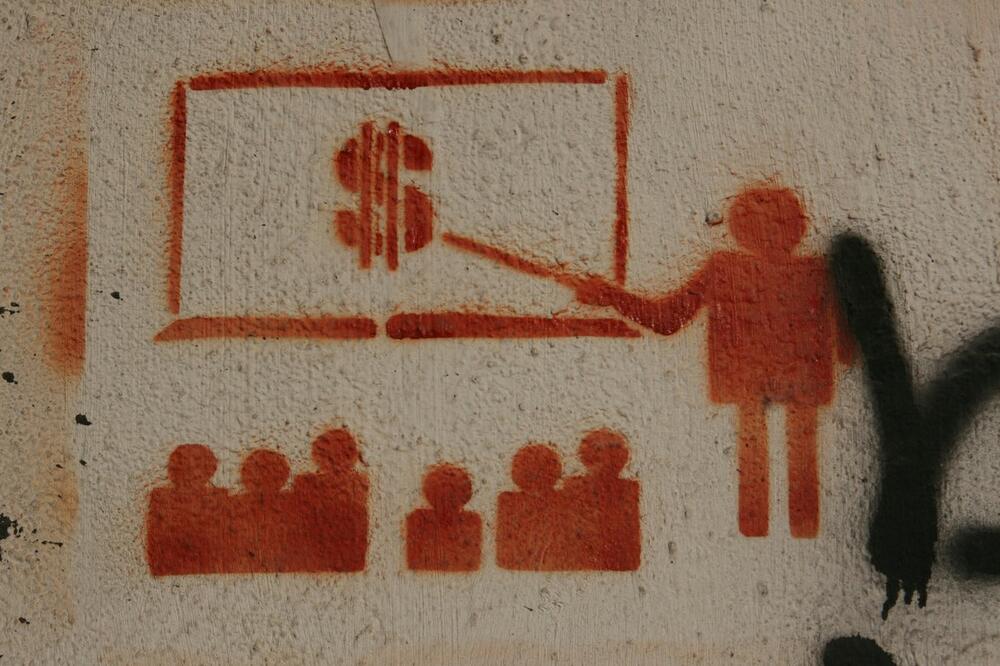According to the famous comment of the literary critic Fredric Jameson, "it is easier to imagine the end of the world than the end of capitalism". For the first time in two centuries, Jameson noted, capitalism is seen as both destructive and irredeemable. The weakening of faith in the possibility of a post-capitalist future is a source of deep pessimism.
This prevailing despair evokes John Maynard Keynes's 1930 essay "Economic Possibilities for Our Grandchildren," which warned of "two opposing errors of pessimism." The first is the pessimism of "revolutionaries who think things are so bad that nothing can save us except violent change." Another is the pessimism of reactionaries who believe that economic and social structures are "so unstable that we must not risk any experiments."
In response to the pessimism of his time, Keynes offered an alternative vision, predicting that technology would usher in an age of unprecedented abundance. Within a century, Keynes argued, continued technological progress would raise the standard of living - at least in the "civilized" world - by 4-8 times that of the 1920s. This will enable the grandchildren of his generation to work only a fraction of the time their ancestors spent working.
The theory of short-term employment for which Keynes is widely known was part of a general vision of a technological utopia. According to his belief, running the economy at full capacity is the fastest way from necessity to freedom. Once we reach that goal, the economic "dentistry" that preoccupied Keynes would become redundant. We could then turn our attention to "our real problems", the problems of "life and human relations, creation, behavior and religion".
Although Keynes found the ideas of Karl Marx incomprehensible, his vision of a post-capitalist future resembled that of Marx from the German Ideology. Marx saw capitalism as a means to solve the problem of production, while communism was seen as a way of managing distribution, thus eliminating the need for division of labor.
Similar to Keynes, Marx's vision of the future promotes the cultivated amateur, a role traditionally reserved for the aristocracy. Marx envisioned a society where one could "hunt in the morning, fish in the afternoon, tend cattle in the evening" and "discuss critically after dinner," without people being limited to the role of hunter, fisherman, herdsman, or critic. Like Keynes, Marx saw capitalism as a harrowing ordeal that humanity must endure in order for the good life to be democratized.
Although Keynes and Marx regarded capitalism as a necessary evil, both opposed hasty attempts to abolish it or overly violent interference with its processes. Keynes warned against the premature dismantling of the capitalist system through the redistribution of wealth and income, while Marx believed that reformists' attempts to humanize capitalism would only delay the revolution. Those rigid attitudes eventually proved too extreme for the Keynesians and socialists who sought to establish Keynesian social democracies in the mid-20th century.
But despite their utopian visions of a post-capitalist world, Keynes and Marx had fundamentally different views on how to overcome the capitalist "monster", based on their different interpretations of the system. For Keynes, capitalism was a spiritual deformation that spreads through Western civilization on the vector of Puritanism and will die naturally when it is no longer needed. In the age of abundance, "it will become clear that the love of money as a possession - which is different from the love of money as a means necessary for both life's pleasures and troubles - is a disgusting condition that should be handed over to mental health specialists with stress."
In contrast, Marx did not consider capitalism to be a psychological disorder, but rather a political and social system in which the capitalist class monopolizes ownership and control of land and capital. This dominance enabled the capitalists to extract surplus value from the workers, who have only their labor power to sell. Capitalism, Marx argued, will not simply die; he must be overthrown, but not before his creative potential is fully realized.
Marx's depiction of capitalism as a creative force was rooted in Hegel's dialectic and heavily influenced by Mary Shelley's novel Frankenstein or Modern Prometheus from 1818. Another source of inspiration was Goethe's Faust, in which Mephisto was portrayed as the diligent executor of the divine plan for the redemption of men.
Contemporary pessimism is in many respects deeper than that identified by Keynes in 1930. Left-wing revolutionaries still yearn for the fall of capitalism, but have failed to provide a viable political alternative since the collapse of Soviet communism. Meanwhile, conservatism has evolved into the "radical right," characterized by resentment and chauvinism, while lacking a coherent vision for a harmonious future. Neither side seems to offer a light at the end of the tunnel.
It is precisely the absence of a redemptive vision that supports and partially defines today's prevailing pessimism. While Keynes and Marx believed in the emancipatory power of machines, technology is now largely seen as a threat, even though our future is intrinsically intertwined with it. Also, Keynes and Marx assumed that capitalism would collapse long before nature revolted against exploitation; today we face the existential threat of climate change and the slim prospects for a successful global solution. Most troubling of all, public confidence in the ability of democratic systems to make significant progress is rapidly eroding.
It is reasonable to be pessimistic when faced with a choice between parasitic capitalism and emerging neo-fascism. But considering that neither the end of the world nor the end of capitalism seems to be coming soon, the question remains: where do we go next?
(Project Syndicate; Peščanik.net; translation: M. Jovanović)
Bonus video:





